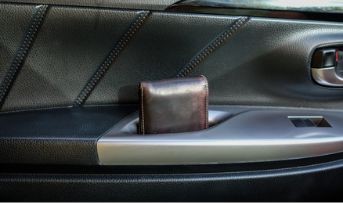General Insurance Blogs, Articles & Updates by - Magma HDI
Have us call you
- RENEW YOUR POLICY
- BUY NEW POLICY

Here are the health benefits of swimming that you must know
With stressful routines making their way into personal and professional lives, more and more people are turning towards a healthy and happy lifestyle. The first step towards a healthier lifestyle begins with a small step today. Exercising along with healthy eating habits contributes towards a better tomorrow. It helps rejuvenate the mind, body, and soul and improves well-being.
With the changing environmental factors, it is essential to maintain good immunity and metabolism. Many physical activities help stimulate the body's response. These activities include jogging, running, swimming, and so on.
Swimming is one of the best fitness regimes to help you stay in the best shape and enhance your stamina. Before taking up any physical activity or sport, ensure that you grasp thorough knowledge about that particular activity. Understand the do's and don'ts and ensure that you follow all safety measures. Consider personal accident insurance online to get coverage for medical expenses if you meet with an unfortunate incident.
Let's look at the health benefits of choosing swimming as your hobby.
What are the health benefits of swimming?
Swimming has a myriad of health benefits that contribute to the effective functioning of the body. The health benefits can be classified as follows:
1. It cuts the risk of cardiovascular diseases:
It is a proven fact that swimming can contribute to heart’s health. It helps in the proper functioning of your heart muscles and reduces the risk of developing cardiovascular diseases.
2. It is good for bones:
Bone density is important in keeping your body fit from the core. Swimming can reduce the risk of developing arthritis by strengthening joints and providing the best nourishment to the bones.
3. It burns calories:
Swimming is extremely effective in burning calories as it involves rapid and continuous motion of different muscles and the coordination of several body functions simultaneously. It enhances the flexibility of the body as well.
4. It develops a healthy respiratory system:
Swimming involves a lot of breathing: both deep and normal breathing. Deep breathing enhances the respiratory system, and the lungs are trained to draw more air and increase the blood oxygen level.
5. It is therapeutic:
Swimming is a good stress buster that helps deal with anxiety and uplifts your mood. It is an effective tool for coping with depression and anxiety.
6. It stimulates blood circulation: It is supposed to be one of the effective tools to boost blood circulation in the body. It is a great way to work out without sweating.
7. It makes you feel younger:
Swimming helps your mind and body stay energetic. It also contributes to making your body look young and agile. It is believed that swimming can delay your ageing process.
8. It is great for asthma:
Quick swimming lessons can help people with asthma as the intensive regulation of breathing can increase the endurance capacity of the lungs.
9. It provides a full-body workout:
Swimming is one of the many exercises that involve your whole body. It helps in the movement of all the muscles and stimulates them evenly. Every swimming style stimulates a different muscle. So, daily a 45 mins session can be equivalent to a full-body workout.
Swimming is one of the most effective and easier ways to stay physically active. Once you start, there is no going back. You feel more relaxed when you swim. There are many ways to develop your swimming habit. You can join a community pool or enrol in a swimming camp. For kids, it is extremely easy to find a school or institute that teaches swimming.
Amidst all this, it is necessary to keep yourself secure at all times. Hence, purchase personal accident insurance online to provide financial cover to compensate for the loss in case of accidents while swimming.
Click HERE to buy personal accident insurance online.
Disclaimer: The information provided above is for illustrative purposes only. To get more details, please refer to policy wordings and prospectus before purchasing a policy.

Here is the list of the top race tracks for biking enthusiasts
If racing fantasies you and if you consider yourself a biking enthusiast, we’ve got you. We all have been fascinated by high-speed car and bike chases and races in our lives. Be it watching Formula One racing or watching movies about speed, they blow our minds with all the stunts, the cinematography, the angles, the acting, sound effects, visuals, and most importantly, “the adrenaline rush” these sequences provide us.
But does India support such racing events? Are there any such riding competitions held in our country? Do you have such questions and require more information on this subject? Well, this blog will have answers which will pique your interest in this topic. Here is the list of the top race tracks for biking enthusiasts.
1. Buddh International Circuit:
Constructed in Greater Noida, Buddh International Circuit made it to the national and international headlines as India’s official Formula One circuit. India is one of the few countries with a racetrack for large-scale international events. The Buddh International Circuit also hosted the Indian Grand Prix for a couple of years, making India one of the few countries to pull it off.
And not just Formula One, this circuit has hosted several competitions such as the National Racing Series, the F1600, the T1 Truck Racing Series, and the National Motorcycle one-make series, to name a few.
2. Madras Motor Racetrack:
This racing track is situated in Irungattukottai, Chennai, India’s first official circuit. It was constructed around the 1980s and was finally set in motion for its purpose in 1990. It has seven turns in its short club track, while the track consists of twelve turns altogether. The short club track has a length of 2.1 km, and the entire circuit is designed in a clockwise pattern.
The racetrack acquired its grade two licence to host multiple bike and car races in several categories, including GT and touring car racing. It staged several other races except for Formula One. The Madras Motor Race Track has also hosted National Touring Cars, the National Motorcycle, and the one-make Motorcycle Championship, to name a few other races. The racetrack is considered to be fit for off-road Supercross competitions too.
The other purpose this racetrack serves is for bike, and car manufacturers, as several of them test their vehicles on this track to check the quality and other features and whether their product requires rework or is fit to be rolled out to the public.
Various automobile-related newspapers, magazines, and websites use these tracks to understand different vehicles better before publishing content about them for their enthusiastic audiences.
3. Kari Motor Speedway:
The racetrack called Kari Motor Speedway is located in Coimbatore, Tamil Nadu. This track was opened in 2013 and has been named after racer and designer Late Mr. Sundaram Karivardhan.
In the past, this track acted as a runway for power gliders and was a part of the Karivardhan-owned aviation company. The Kari Motor Speedway has hosted events like National Touring cars, one-make series, and the National Motorcycle Championship, to name a few.
Some other race tracks in India are Chicane Circuit, Hyderabad, Meco Kartopia in Bangalore, etc., which host various karting competitions.
We hope this helped you gain insights into how our country promotes such racing events and has avenues for the same. And in hindsight, while we cater to the biking fanatic in you, we would also like to draw your attention to the safety of your vehicle. To combat the unexpected situations and focus on getting your two-wheeler fixed, you need to purchase 2 wheeler insurance. Explore all the options provided by various insurance companies and buy the best 2 wheeler insurance which would serve your needs optimally.
Click HERE to know more about the benefits of 2 wheeler insurance.
Disclaimer: The information provided above is for illustrative purposes only. To get more details, please refer to policy wordings and prospectus before purchasing a policy.

Here are the benefits of drinking water in a copper vessel
The emphasis on health and preventive care has skyrocketed post-pandemic. People of different ages leading varied lifestyles have stepped up and are paying attention to their exercise, sleep, and diet to stay healthy. However, these measures are difficult to continue for undisciplined people or those with extremely hectic schedules.
For such people, it is best to adopt small measures that aid in the long run and only require spending less time on fulfilment. Such measures, supplemented with purchasing the best health insurance in India, are plenty to keep oneself stress-free about their health without stressing too much.
With India being the land of Ayurveda, what better way to enhance your health than following small health tips daily? One of the most strongly recommended activities is drinking water stored in copper vessels. Why? What are its potential benefits?
Read on to find a comprehensive list of benefits of drinking water in a copper vessel.
1. Promotes hydration:
Hydration is an essential part of a healthy lifestyle. Negligence can lead to severe complications in the long run. To drink water from a copper vessel, one must consciously store water overnight to gain its most benefits. This way, you can ensure that you are keeping track of your water intake and preventing future medical complications.
2. Prevents copper deficiency:
Copper is a mineral required by our body to function at its optimum capacity. Naturally, humans can only produce up to 1.4 to 2.1 mg of copper per kilogram of body weight. It is essential in red blood cell production, maintaining nerve cell health, and boosting the immune system.
Water stored in copper vessels carries the properties of the mineral, thereby preventing its deficiency. However, excess copper exposure may lead to poisoning and other illnesses. So be mindful of the intake.
3. Aids in battling cancer:
While it alone cannot ward off or eliminate cancer, it aids in eradicating cancer by acting as an antioxidant. It fights cancer-causing free radicals and even helps produce melanin, which protects the skin from harmful UV rays.
4. Improves thyroid functioning:
Water from copper vessels possesses the quality of balancing the improper functioning of the thyroid gland. If you suffer from copper deficiency, you may be suggested this as a measure to improve your thyroid gland's functioning. This can directly impact your metabolism and growth.
5. Helps with inflamed joints:
The copper produced in the body is stored mainly in the skeletal structure. If you suffer from weak or inflamed joints or arthritis, consider drinking copper-infused water to strengthen your skeletal system.
6. Antimicrobial properties:
Copper has significant antimicrobial properties, which can help prevent diseases by eliminating bacteria, viruses, or fungi that may have entered your body and compromised your immunity.
Since it has natural preventive benefits, it is highly recommended for seniors with weaker immune systems and joint pains. You must also look for the best health insurance in India for your aged parents and immediate family to protect them with a reliable safety net.
With many more benefits, it is highly recommended that people with copper deficiencies drink water from copper vessels. They make for better, cold, and sweet-tasting water, which is much better than water from packed bottles. Try such non-invasive, easy-to-follow tips that Ayurveda suggests, along with the best health insurance in India. Your honest efforts will help you reap the desired results in achieving a healthy lifestyle.
Click HERE to buy health insurance in India.
Disclaimer: The information provided above is for illustrative purposes only. To get more details, please refer to policy wordings and prospectus before purchasing a policy.

How can acidity lead to bigger health issues
Ever felt discomfort in your gut followed by a burning sensation in your chest? This could be because of acidity. Very often, people neglect the symptoms of acidity and gulp down antacids for instant relief. But, what is essential to know is that acidity can lead to severe health issues. If you wonder how acidity has more significant health implications, this article is just for you. We will examine acidity, its symptoms, cure, and other side effects.
What is acidity?
The entrance of your stomach valve, or the lower esophagus, closes itself as soon as food passes through it. However, if, due to some reason, the valve remains open, the stomach acids can move up and cause a burning sensation or discomfort. This phenomenon is known as acidity.
What is acid reflux?
If you experience symptoms of acidity frequently or more than twice a week, then chances are that you might suffer from a gastric condition known as acid reflux. Burning pains and discomfort after eating a meal are symptoms of acid reflux.
Let's understand the common causes of acid reflux?
1. Eating heavy portions of food
2. Sleeping after consuming food
3. Overweight or obesity
4. Eating foods such as tomato, garlic, and onion in abundance
5. Eating too much spicy food
6. Eating fried food regularly
7. Habitual drinking of alcohol, caffeine, etc.
8. Smoking
9. Side effects of certain medications
What are the symptoms of acid reflux?
1. Heartburn: A burning sensation moving up your chest via the stomach
2. Regurgitation: Bitterness or foul taste in the mouth
3. Bloating
4. Blood in stool
5. Hiccups
6. Nausea
What are the long-term implications of acid reflux?
1. Esophageal stricture:
The tightening or narrowing of the esophagus is known as an esophageal stricture. Since the esophagus has restricted space, it becomes difficult for the food to pass down the esophageal tube.
These situations can aggravate quickly and result in cancerous and non-cancerous growths. People suffering from esophageal stricture experience severe pain in their throats and face difficulty when swallowing food.
2. Esophageal ulcer:
During acid reflux, the acids in the stomach traverse upward through the esophagus. The constant contact of the acid can burn the stomach's inner lining. It wears away the tissues and forms a sore. This can cause bleeding and pain while swallowing food or other drinks. People experiencing this are advised to have fibre-rich foods such as oats, legumes, nuts, fruits, etc.
3. Barrett's esophagus:
The swallowing tube connecting the mouth and the stomach experiences damage due to acid reflux and causes the lining to become red and thick. Barrett's esophagus increases the risk of esophageal cancer, which can sometimes be fatal.
Patients experience chest pain and irritation under these circumstances. There are chances of vomiting blood or passing bloody stool. Weight loss is another common side effect of Barrett's esophagus.
These are some of the bigger complications of acid reflux. Healthy eating and proper exercise are critical to a healthy future. Acid reflux is more commonly found among elders. This is because, as you grow older, your muscles become weaker. This puts the elderly members of your family at greater risk of acid reflux. A few ways to ensure a lower risk of acid reflux are by opting for healthier diets and eating habits, regular exercise, quitting smoking, and drinking.
If the problem persists, you should talk to your doctor and get an expert opinion. Medications can heal acid reflux to some extent. Ensure to go through regular health checkups to avoid problems in the future. Do not forget to invest in health insurance in India for parents to safeguard their health during the tough time of their age.
Click HERE to find out more about health insurance in India for parents.
Disclaimer: The information provided above is for illustrative purposes only. To get more details, please refer to policy wordings and prospectus before purchasing a policy.

Practice these steps to best deal with motion sickness while driving
If you feel dizzy while driving where the roads are primarily like pins, you are not the only one. Many car drivers feel the sensation of wooziness and motion sickness during a long journey, and it can be a nightmare.
What if you end up crashing your car due to dizziness? This thought might have crossed your mind. It is natural to feel uneasy while driving, especially for long hours. Due to continuous motion, your brain might feel fatigued, and as a result, you may get distracted. These distractions can be fatal for you and your car.
Even if you buy car insurance online that will cover your damage, what about the injuries you will face? In this post, we'll give you some advice on reducing the effects of motion sickness while driving.
1. Keep an eye on your diet:
Be careful about what you eat before you drive because your food can greatly impact motion sickness. Avoid eating anything that makes you feel full. Eat light an hour before because you won't feel heavy while driving. The problem might worsen if you eat spicy foods. Therefore, be sure to eat small meals, and it's best to avoid any items that don't suit your taste. A proper food regimen can significantly reduce symptoms of motion sickness.
2. Check your driving position:
Sit comfortably and keep your eyes on the horizon while you are driving. By doing this, you divert your attention from moving items. Even though you need to be aware of your surroundings, try to avoid looking sideways while driving. It is because sudden and severe nausea might occasionally result from looking sideways. If you can, keep the windows open when operating a four-wheeler since a steady stream of fresh air can help with motion sickness.
3. Check the ventilation and cooling:
Many people avoid AC and prefer natural air. If your car's cooling system isn't sound, it can create driving problems. It could end up being one reason for dizziness or motion sickness. Similarly, poor ventilation in cars is another frequent cause of motion sickness while driving. It may result in some odors being trapped, which may make you nauseous.
It is therefore advised to keep your car well-ventilated by slightly lowering the windowpanes. A calming scent in your vehicle, like mint or lavender, is also a good idea because it can help boost your mood and prevent motion sickness symptoms.
4. Enjoy breaks:
Driving for long stretches can also cause motion sickness. So, if you are on a long-distance trip, it is a good idea to stop frequently. When you reach a restaurant or rest area, stop your car for a short while, get out, and stretch your legs. Taking regular breaks helps a lot with motion sickness symptoms. Also, if you feel sick while driving, stop immediately, splash some water on your face, and don't get back behind the wheel until the sickness is gone.
5. Drink tea:
If you are a tea lover, have it when taking a journey break. Tea can treat motion sickness by calming and relaxing the muscles in your stomach and can lower the amount of acid in your stomach.
6. Carry medicines:
There are over-the-counter medications that can give you immediate relief from motion sickness. However, always speak with your doctor before using such medication. You should only take these drugs as prescribed by your doctor.
Motion sickness is a common problem, but you must take appropriate steps to overcome the problem while driving. Bring the above tips into practice, and you will surely find a good solution. The effects of motion sickness can be adverse, and with time if you feel that the situation is worsening, you must see your doctor for further diagnosis.
If you are going on a long drive for the first time, ensure that you have already taken a good rest. Also, buy car insurance online as an excellent option to cover any damages that might occur during your trip. By purchasing online car insurance, you unlock features and benefits like instant coverage, better premium, and 24/7 customer support to safeguard your car from mishaps.
Click HERE to buy car insurance online.
Disclaimer: The information provided above is for illustrative purposes only. To get more details, please refer to policy wordings and prospectus before purchasing a policy.

The best anger management ways to tame your temper
We have been hearing for a long time that anger is human’s greatest enemy! Before going for the strategies of anger management, it is worth knowing more about anger. It is a mental state that makes a person say or do something unusual. Anger can be seen as an ego outburst and can also arise from a hormonal problem. It is even believed to be the aftermath of high body toxicity.
Extensive anger can lead to various medical complications, if not controlled in time. For example, it raises blood pressure; thus, it can be extremely dangerous if you have pre-existing heart disease or diabetes.
There are many reasons for getting angry, and so are the solutions. In this blog, we shall discuss the best and most effective ways of anger management.
Anger Management Techniques:
Different techniques work for different people. While some people adopt simple techniques, many must adopt complex anger management processes depending upon the severity of getting angry. Like any other psychological issue, anger is also complicated. As stated, these are some of the basic techniques that are suggested to be tried.
● Exercise:
Studies have shown that many people benefit from exercise to keep anger and stress at bay. Daily exercise, brisk walking, running, or bike rides can prevent anger. These exercises uplift your mood and make you calm down.
● Write down your problem:
Instead of showing rage toward others, you may write your thoughts on a piece of paper and vent out all your anger by peacefully transforming it into words. This method will surely help in effective anger management.
● Going for a walk: Going for a walk is one of the most effective strategies for anger management. The morning atmosphere remains calm and soothing due to lesser vehicles and noises. You will obtain excellent mental peace through morning walks and feel refreshed and energetic throughout the day. It is a proven fact that we become less angry when we are in a good mood.
● Counting breath:
When anger strikes, you should start counting your breaths. This is one of the most successful anger management ideas. Counting your breaths can help you reduce your anger, stabilise your breath, control your heartbeat and increase your concentration.
What makes you angry?
We have discussed a few of the best anger management ideas. But you must question yourself about what makes you angry or feel frustrated. You need to do a quick analysis and consider all possible reasons and situations. According to the research, people with frequent anger issues are vulnerable to heart-related diseases. So, in addition to considering all the factors to avoid anger, you should also procure health insurance from online health insurance companies.
Following are a few probable reasons that can trigger your temper:
● Insulting behaviour toward you
● Frequent noise
● Discussing mishaps or accidents
● Disagreement with you by anyone
● Workload
● Stress
● Mismanagement of tasks
Likewise, you must create a list of what you mostly do when you get angry. For example, some people tend to throw things away. Some people shout or scream when they get angry. For anger management, knowing these things is essential. You need to write down your plan for anger management. Writing a solution will help you make a fresh start toward peaceful well-being. By practicing it, you will be able to manage your boiling blood whenever you get angry.
Anger management is a systematic and time-consuming process that does not fetch results overnight. Build a routine to resolve anger issues and douse the fire before it damages your health and mental peace. As discussed, anger can adversely affect your health, especially your heart.
It is advised to find the best insurance by researching the different plans of online health insurance companies. If you feel your temper issues are slipping beyond your control, it is always a good idea to visit your doctor. Take the help of a professional and try to find a solution that suits you the best.
Click HERE to buy health insurance online.
Disclaimer: The information provided above is for illustrative purposes only. To get more details, please refer to policy wordings and prospectus before purchasing a policy.

The best first-aid tips to deal with kitchen accidents
No area in the house is immune to mishaps, and Kitchen accidents are undoubtedly the most common. There are several potential sources of injury in the kitchen, including sharp knives, hot appliances, and open flames. While it's impossible to eliminate risk, taking precautions can help mitigate it. Accidents can happen to anyone, whether they are awake or not.
When working in the kitchen, you need to be prepared for any emergency that may arise. If you plan beforehand for the worst, you can limit the damage. A personal accident insurance policy covers the costs if you get wounded in an accident and need medical care.
Moreover, you can avoid more serious injury by following these simple rules for kitchen safety and first aid.
First aid for knife cuts:
Accidents due to kitchen knives are common, but they require immediate first aid. If you cut or slice your finger, you should treat the wound using these tips:
● Clean the cut or slice area with soap and water. Apply pressure to it with a bandage or a clean cloth for a few minutes until the bleeding stops. If you bleed through the cloth, you can use another piece of cloth or use a cotton piece.
● Get the antibacterial ointment from your first aid kit and put it over the cut. Cover the wounded area with a gauze pad and adhesive tape.
● Get immediate medical help if the bleeding doesn't stop after a few minutes, the cut becomes inflamed or has jagged edges.
First aid for eye injuries:
Sometimes people accidentally shoot lemon juice or other substances straight into their eyes. If something gets in your eyes while cooking, you should follow these steps:
● Wash your eyes with lukewarm water for about 15 minutes. Protect your second eye by covering it.
● If you have a cut on your eye, don't apply pressure to it or wash it. Instead, call for medical help.
First aid for falls:
Water and oil can spill from the pot and make the floor slippery. Many people fall in the kitchen due to the slippery floor, so you should keep your kitchen floor clean and dry. However, if you still happen to fall in the kitchen, follow these tips:
● Try to get up in the right manner, or you could make your injury worse. Slowly rise to your hands and knees.
● Try to crawl to a nearby chair or preferably a wall and stand up.
● If you think you may have a broken bone or can't get up, don't move and call for help.
First aid for burns:
An accident due to boiling water or oil splashing while cooking is a severe accident. You should ensure that your children are away from the oven or stove when cooking. Turn the pot handles toward the back of the stove to prevent burns. However, if you have a burn, you must identify the type and follow the safety tips.
Different types of burns:
● First-degree burn:
If the top layer of your skin is injured, you can treat it by placing the burned area under cool, running water for five minutes.
● Second-degree burn:
If the deeper skin is injured, soak the injured area in cool water for 30 minutes and apply an antibiotic cream to it.
● Third-degree burn:
If all layers of skin are burned, apply a wet dressing and call for emergency medical help.
These first-aid tips will help you deal with kitchen accidents and prevent the condition from worsening. However, you should pay extra attention if you have children. Keep your children away from the oven, stove, microwave, knives, and anything that seems dangerous. Always wear an apron and gloves while handling sharp objects and hot utensils and working with boiling water or oil.
You can install smoke detectors in your kitchen to protect you from fire accidents. Also, purchase a personal accident insurance policy to recover from the major injuries faced in a kitchen accident to pay your medical expenses.
Click HERE to buy a personal accident insurance policy.
Disclaimer: The information provided above is for illustrative purposes only. To get more details, please refer to policy wordings and prospectus before purchasing a policy.

Here are a few items that you must never leave in your car
Buying a car was seen as a status symbol in the past. However, it has become a necessity over time. Considering the growing population, increasing traffic, and demand for luxury and convenience, cars have improved commutation in urban landscapes.
Most people spend long hours in their cars due to long-distance commutes. After completing the ride, remember a few items you should never leave in your vehicle.
1. Edibles:
It is natural to feel snacky during the day. Keeping snacks in your car for emergencies is a good idea, as long as you take them out when you exit the vehicle. When left for long hours, the food or drinks are subjected to the changing temperature inside the car, which may result in the growth of bacteria. The same applies to soda cans that have pressure within and may explode due to the external pressure from the car's cabin.
2. Aerosols:
Aerosols like hairsprays, deodorants, air fresheners, etc., are essentials. Keeping one in the car for short periods is acceptable. However, since the cabin's temperature keeps changing without artificial air conditioning when the car is not in use, you may find that your aerosol can has exploded all over your seats.
3. Plastic bottles:
Plastic bottles are a fire hazard to your car. It magnifies the sun rays pouring in through the windows or windshield and may result in setting your seats on fire. Such incidents are considered the owner's negligence and not covered by car insurance as admissible claims.
Even if the sun rays are not strong enough to ignite a fire, they will alter the composition of the plastic bonds in the bottle, which may result in harmful BPA exposure.
4. Flammable items:
Items like lighters must never be stored in cars. The fuel within such containers can expand due to the heat and result in a fire. Again, such fires are not within the scope of admissible car insurance claims. Therefore, it is essential to remember to remove flammable items from your car cabin.
5. Valuable goods:
While the other items on this list risk the car, valuable goods are what carjackers look for while determining which car to steal from. Ensure you take out any valuable goods like phones, headphones, portable chargers, laptops, and purses from your vehicle. Leaving an expensive item in the car makes it vulnerable to drawing the attention of burglars.
6. Items with specific chemical formulations:
Items like sunscreen and medication are scientifically manufactured with a specific composition of ingredients involving chemicals to ensure efficiency. Leaving such things in the heat will alter their formulation, making the goods toxic or causing a loss of efficacy.
7. Alcoholic drinks:
Heat leads to increased fermentation which ruins the flavour of alcohol. Additionally, alcoholic drinks are packaged with internal pressure to keep the liquor from altering while in transit before consumption. Excess heat is bound to make them explode.
While this list is not comprehensive, it is a general guideline for what you must not leave in the car. Generally, anything that may be affected due to high heat must not be kept inside the vehicle. Ensure that any important documents like your car insurance and registration are not left in the car. Take care of your valuables and avoid any considerable risks to your car.
Click HERE to buy the best car insurance in India.
Disclaimer: The information provided above is for illustrative purposes only. To get more details, please refer to policy wordings and prospectus before purchasing a policy.


